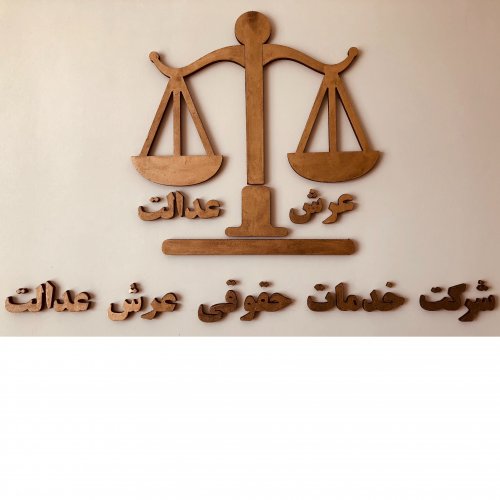Best ADR Mediation & Arbitration Lawyers in Afghanistan
Share your needs with us, get contacted by law firms.
Free. Takes 2 min.
Or refine your search by selecting a city:
List of the best lawyers in Afghanistan
About ADR Mediation & Arbitration Law in Afghanistan
Alternative Dispute Resolution (ADR), including Mediation and Arbitration, is an increasingly popular method for resolving disputes in Afghanistan, offering a more flexible, cost-effective, and expedient solution compared to traditional court proceedings. Afghanistan's legal framework incorporates both local customs and international practices, reflecting its diverse socio-political landscape. ADR has been particularly instrumental in commercial disputes, family conflicts, and community disputes, aligning with societal norms and Islamic teachings that emphasize reconciliation and fairness.
Why You May Need a Lawyer
Engaging a lawyer experienced in ADR in Afghanistan can be beneficial in several circumstances:
- Complex Disputes: When facing intricate commercial disputes that require expert navigation through mediation or arbitration.
- Family Law Issues: In family disputes where mediation is preferred over court proceedings to maintain relationships and confidentiality.
- Contractual Obligations: When contracts include arbitration clauses that a lawyer can help interpret and navigate.
- Cultural Sensitivity: A lawyer can provide insights into local customs and practices, crucial for culturally sensitive disputes.
- Legal Representation: During arbitration proceedings where professional representation can strengthen your case.
Local Laws Overview
Afghanistan's legal structure for ADR is integrative, combining Sharia law, civil law, and customary practices. Key aspects include:
- Legal Recognition: ADR methods like mediation and arbitration are legally recognized and encouraged as per the Afghan Civil Code and commercial laws.
- Neutrality: ADR practitioners are expected to be neutral parties, facilitating fair resolution without bias.
- Enforcement: Arbitration awards can be enforced like court judgments, with a framework for appeal only on limited grounds.
- Institutional Support: Bodies like the Afghanistan Center for Commercial Dispute Resolution provide structured environments for arbitration and mediation.
Frequently Asked Questions
What is the difference between arbitration and mediation?
Mediation involves a neutral third party helping parties to reach a mutual agreement. Arbitration involves a neutral arbitrator making a binding decision after evaluating the evidence and arguments.
Is ADR legally binding in Afghanistan?
Arbitration awards are legally binding and can be enforced similarly to a court judgment, whereas mediation agreements require voluntary compliance but can be ratified by a court.
Can ADR be used in all types of disputes in Afghanistan?
ADR is suitable for most civil and commercial disputes, but certain criminal and family law matters may still require court intervention.
How long does the ADR process take?
The duration varies depending on the complexity of the dispute but generally, ADR is faster than litigation.
Are ADR sessions confidential?
Yes, both mediation and arbitration maintain high levels of confidentiality compared to public court proceedings.
Can I choose my arbitrator or mediator?
Participants can often agree on a mediator or arbitrator, or an appointment can be made by an institutional panel.
What are the costs associated with ADR?
Costs can vary but ADR is typically less expensive than litigating in court due to reduced legal fees and quicker resolution times.
Are there any specific qualifications for ADR practitioners in Afghanistan?
Mediators and arbitrators are often required to have legal or relevant subject matter expertise and experience in ADR processes.
Can foreign arbitral awards be enforced in Afghanistan?
Yes, Afghanistan is a signatory to the New York Convention, allowing for the enforcement of foreign arbitral awards under certain conditions.
What happens if one party does not comply with a mediation agreement?
If a mediation agreement is not adhered to, parties may seek enforcement through the court, provided the agreement is ratified.
Additional Resources
Consider reaching out to the following resources for further information and assistance:
- Afghanistan Center for Commercial Dispute Resolution (ACDR): Offers services and information on arbitration and mediation.
- Ministry of Justice: Provides access to legal frameworks and laws relevant to ADR.
- International Organizations: Such as The Asia Foundation, which supports rule-of-law initiatives including ADR methods.
Next Steps
If you're seeking legal assistance in ADR Mediation & Arbitration in Afghanistan:
- Consult a Lawyer: Seek a lawyer with expertise in ADR to understand your rights and options. This initial consultation is crucial for setting the right course of action.
- Gather Documentation: Collect all related documentation, including contracts, correspondence, and previous agreements to aid your case preparation.
- Consider ADR Centers: Get in touch with local ADR centers, like the ACDR, to initiate mediation or arbitration procedures.
- Stay Informed: Regularly update yourself on the progress of your case and any legal developments relevant to ADR in Afghanistan.
Lawzana helps you find the best lawyers and law firms in Afghanistan through a curated and pre-screened list of qualified legal professionals. Our platform offers rankings and detailed profiles of attorneys and law firms, allowing you to compare based on practice areas, including ADR Mediation & Arbitration , experience, and client feedback.
Each profile includes a description of the firm's areas of practice, client reviews, team members and partners, year of establishment, spoken languages, office locations, contact information, social media presence, and any published articles or resources. Most firms on our platform speak English and are experienced in both local and international legal matters.
Get a quote from top-rated law firms in Afghanistan — quickly, securely, and without unnecessary hassle.
Disclaimer:
The information provided on this page is for general informational purposes only and does not constitute legal advice. While we strive to ensure the accuracy and relevance of the content, legal information may change over time, and interpretations of the law can vary. You should always consult with a qualified legal professional for advice specific to your situation.
We disclaim all liability for actions taken or not taken based on the content of this page. If you believe any information is incorrect or outdated, please contact us, and we will review and update it where appropriate.
Browse adr mediation & arbitration law firms by city in Afghanistan
Refine your search by selecting a city.









